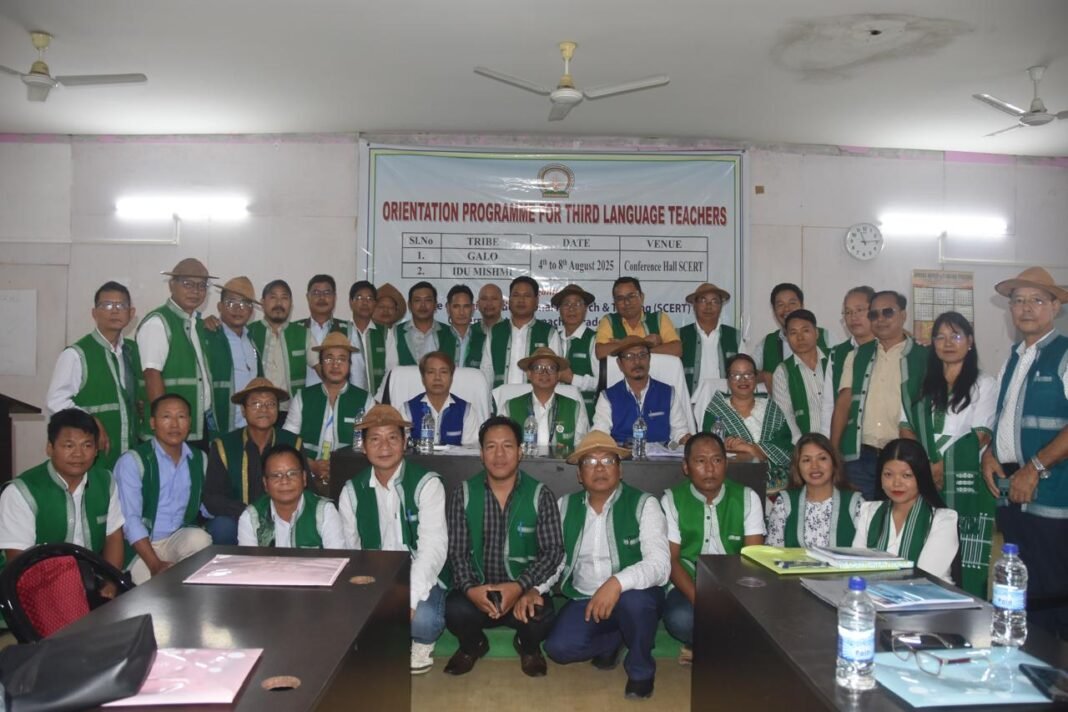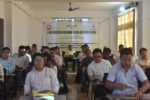HT Correspondent
ITANAGAR, Aug 22: In a significant step towards strengthening multilingual education in Arunachal Pradesh, the State Council of Educational Research and Training (SCERT), Itanagar, has successfully conducted an extensive orientation programme for teachers on tribal and third languages.
The initiative is in line with the National Education Policy (NEP) 2020, which lays emphasis on the promotion of mother tongue and regional languages in school education, alongside encouraging multilingualism to enrich classroom learning.
According to an official statement, the orientation programme was conducted over a period of more than three months, beginning on May 9 and concluding on August 22, 2025.
A total of 696 teachers representing different districts of the state participated in the training, which was organised in 17 batches.
Each batch received five days of intensive training, designed to ensure comprehensive coverage of key aspects of teaching and effective classroom implementation.
The statement further informed that the orientation was held in collaboration with Community-Based Organisations (CBOs), who played a vital role in conducting the sessions in their respective languages.
This partnership not only provided pedagogical support but also brought in rich cultural insights, thereby strengthening the foundation of multilingual education in the state.
Teachers were given hands-on training and guidance on teaching methods that would make learning in tribal languages more engaging and accessible for students.
The training covered a wide spectrum of tribal languages spoken across Arunachal Pradesh.
These included Nyishi, Tagin, Galo, Apatani, Tangsa, Wancho, Aka (Hrusso), Kaman Mishmi, Taraon Mishmi, Singpho, Idu Mishmi, Adi, Tai Khamti, and Tutsa.
By providing training in such a diverse range of languages, the programme is expected to ensure that children studying in schools across different regions will have the opportunity to learn in their mother tongue.
The initiative, as highlighted in the statement, reflects the state government’s commitment to preserving and promoting the rich linguistic and cultural heritage of Arunachal Pradesh.
Officials emphasised that empowering teachers with the necessary knowledge and skills to teach tribal and third languages will help students remain connected to their roots while fostering a sense of pride in their cultural identity.
Speaking at the event, Toko Babu (APCS), Deputy Commissioner of ICR and Director, SCERT, remarked that the orientation programme would pave the way for effective classroom teaching of tribal languages as formal subjects.
He added that this would significantly contribute towards the preservation of indigenous languages and their transmission to younger generations, ensuring that they do not fade with time.
“The training will help teachers carry forward the essence of our indigenous languages and ensure that students not only learn academically but also feel the cultural pride of their heritage. This is a forward-looking step for the future of education in Arunachal Pradesh,” the Director said.
The official statement further underlined that the orientation marks an important milestone in aligning classroom practices in the state with the broader vision of NEP 2020.
The policy advocates for multilingual education as a tool to not only improve academic performance and comprehension among students but also to celebrate India’s cultural and linguistic diversity.
By incorporating tribal and third languages into mainstream education, the state is contributing to a more inclusive and culturally rich educational framework.
The SCERT Itanagar’s efforts, supported by CBOs and education officials, are expected to bring long-term benefits for both students and teachers.
Teachers, having undergone this intensive training, are now better prepared to introduce tribal languages in their classrooms with confidence, ensuring that children grow up with both linguistic proficiency and cultural awareness. With this initiative, Arunachal Pradesh has taken a decisive step towards safeguarding its vast linguistic legacy and promoting education that is both meaningful and rooted in the state’s cultural ethos.












